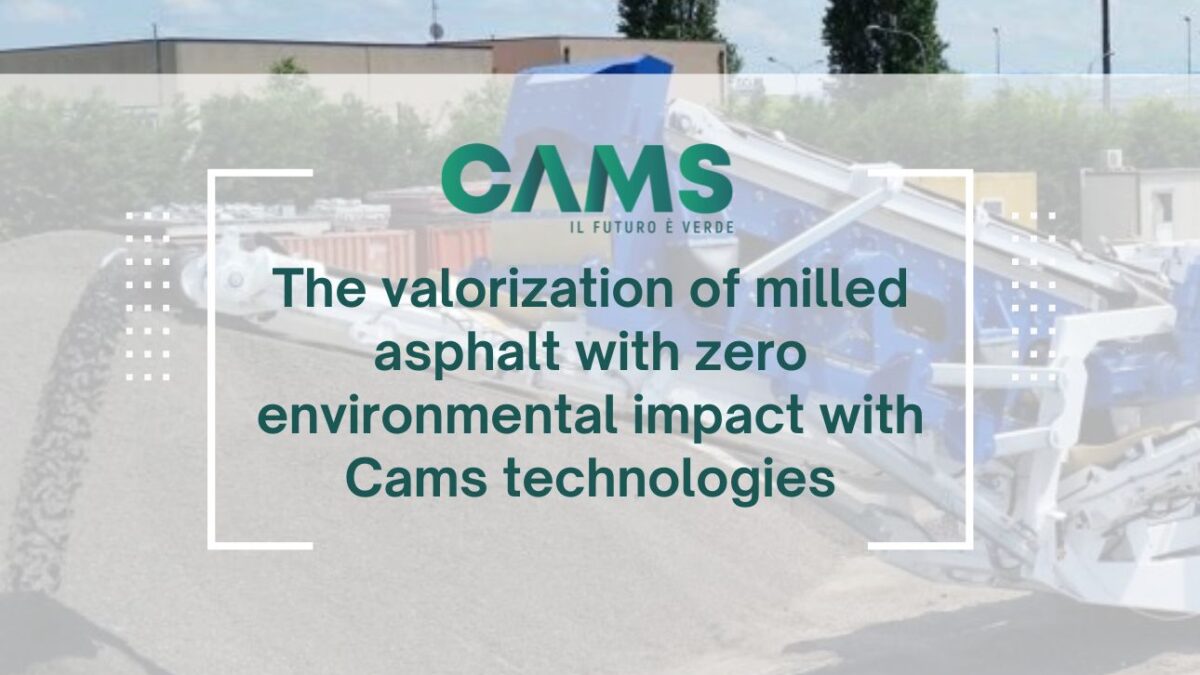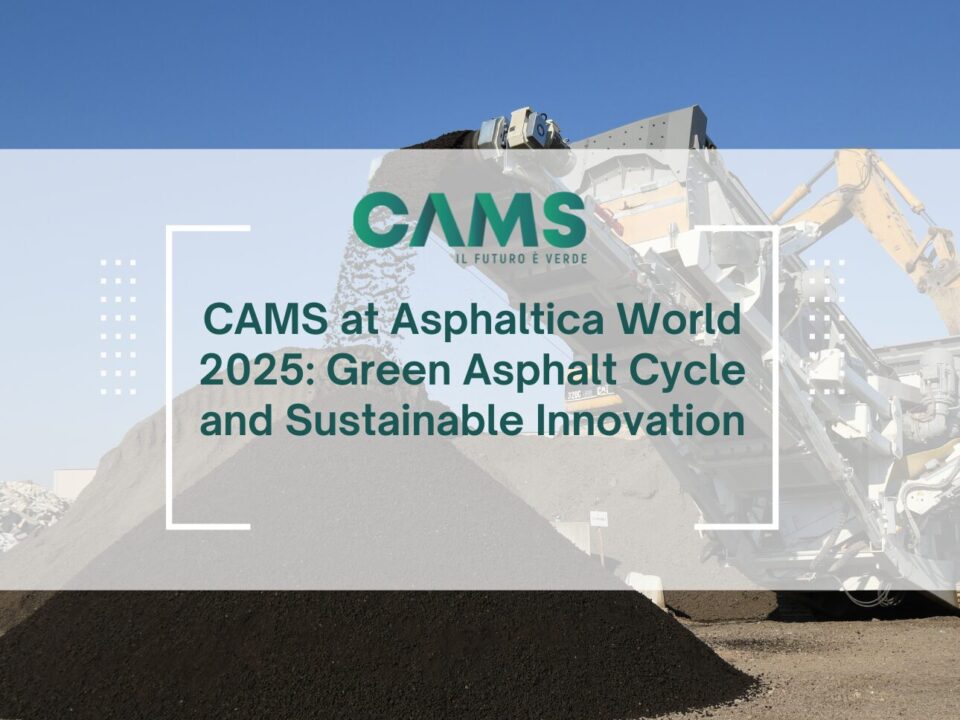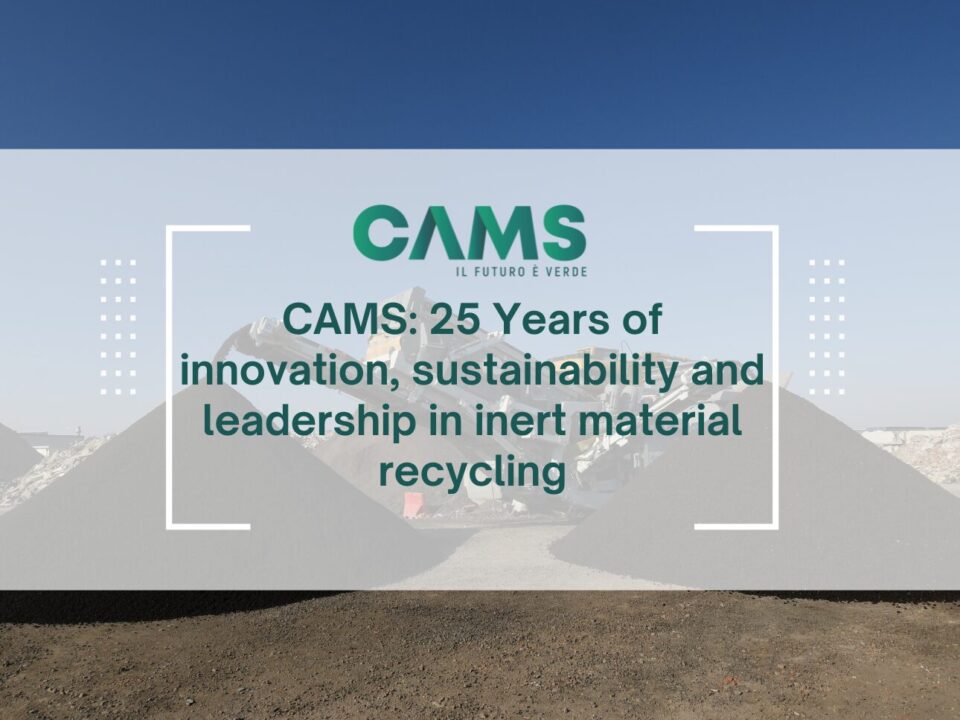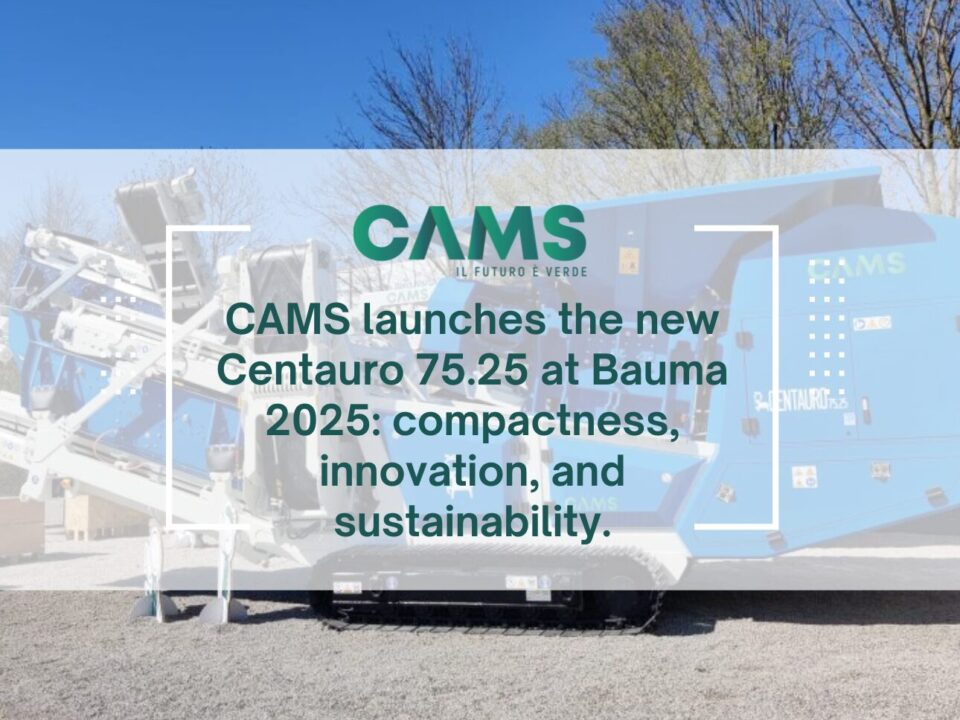During the latest edition of Asphaltica 2024, the conference dedicated to the development of zero-impact reclaimed asphalt was of particular interest to us.
Participants in the discussion included engineer Marco Venturi, head of the CAMS Italia technical office, and Andrea Cenni, an information engineer, founder of Studio Cenni, and an expert in practices related to Industry 4.0 and 5.0 regulations.
The evolution of CAMS: the integration of know-how for the development of new solutions
To understand how we arrived at the technological solutions we use today, it’s helpful to briefly review the history of CAMS.
The company was born from the combined expertise of Bitelli’s technicians and Tem, a leading company in the fixed plant sector. This merger led to the integration of knowledge and the development of systems that optimized the use of reclaimed asphalt, a precious resource that risked accumulating untapped.
Since the early 2000s, CAMS has worked to develop systems capable of reusing reclaimed asphalt while preserving its valuable characteristics. This has led to a radical change in approach for the entire industry: “Instead of crushing the material with traditional methods that generated excessive quantities of filler and dust, we began to study and implement a more gentle crushing system, capable of preserving the bitumen and minimizing losses,” Venturi explained during his presentation.
The Centauro line: innovation at the service of the environment
A prime example of the development of CAMS technologies that can make a difference is the Centauro line of crushing plants.
Centauro plants combine a shredder, screen, and a magnetic separator in a single machine. “These plants,” Venturi explains, “allow us to process even large slabs without the need for pre-treatment, thanks to the introduction of patented pushers that pre-shred the slabs in the hopper.
The machines are equipped with an advanced self-diagnostic system, which allows for remote monitoring and complete control of operations, improving efficiency and reducing downtime. This remote intervention capability has proven crucial, especially when supporting customers in countries with language barriers, as was the case in Russia. The system detects any anomalies and provides detailed information on any issues, ensuring rapid and accurate interventions,” Venturi concludes.
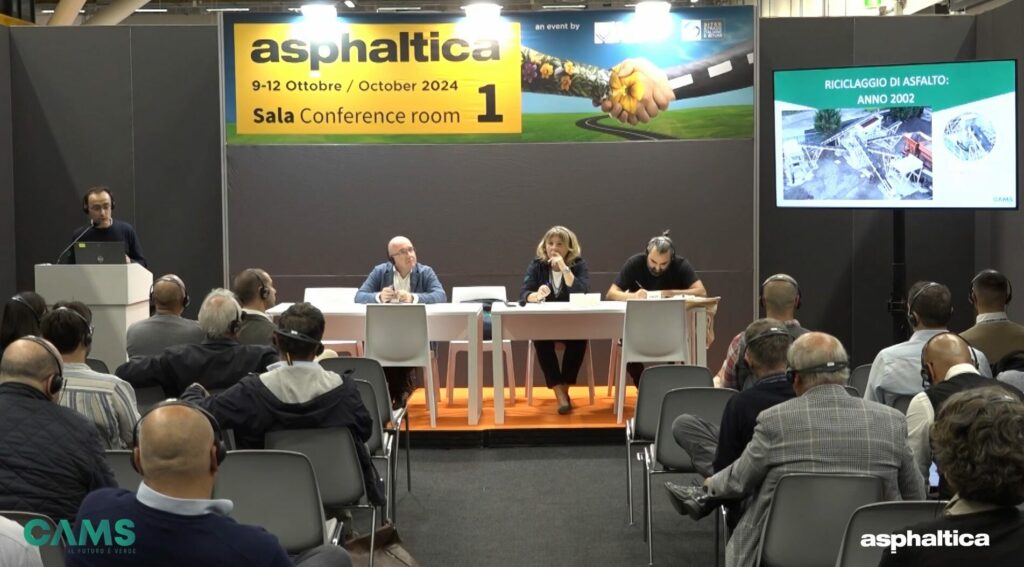
CAMS in Industry 5.0
The following excerpt is by Andrea Cenni, an engineer with over 30 years of experience in plant design and process engineering.
“In today’s Industry 4.0, even mobile machines, such as those manufactured by CAMS, are required to be treated as automated machinery on production lines. This means that these machines must meet automation, predictive maintenance, diagnostics, and consumption management criteria, as well as ensure effective information exchange,” states Cenni.
The 5.0 transition and its tax opportunities
The new tax benefit linked to the Industry 5.0 transition, effective from January 2025, represents a significant opportunity for businesses but also poses some challenges. The GSE guidelines maintain the Industry 4.0 requirements, with an additional focus on energy efficiency and sustainability. Industry 4.0 machinery and photovoltaic systems, for example, can be integrated to maximize the benefits. It will be essential to ensure the use of certified meters and compliance with environmental regulations, with the goal of reducing consumption without compromising productivity.
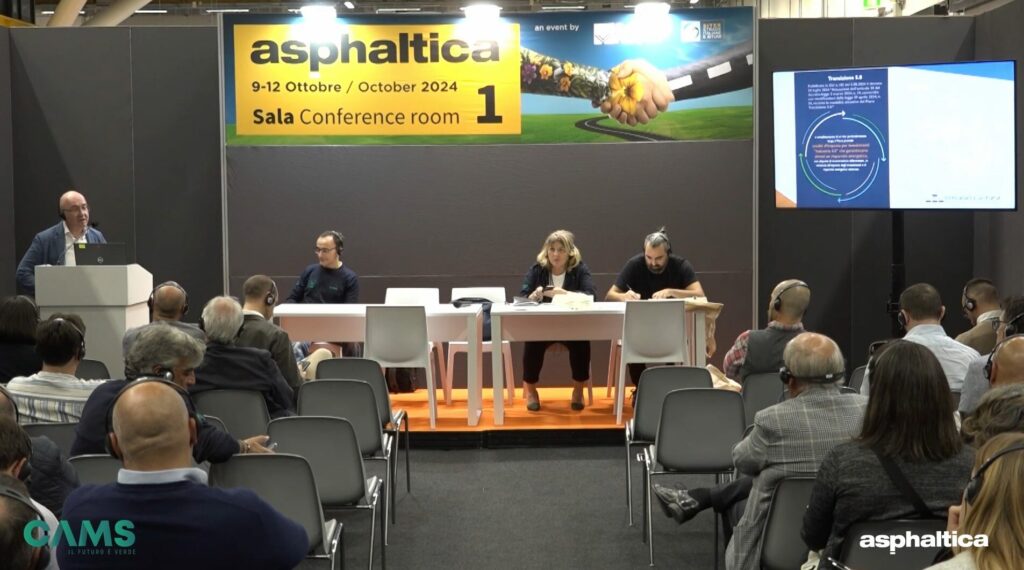
Thanks to CAMS’s commitment to research and development, the valorization of reclaimed asphalt becomes a sustainable reality, capable of combining technological innovation, production efficiency, and respect for the environment. A concrete example of how the industry can evolve towards more responsible and forward-looking models.
Contact us for more information.
Cams “IL FUTURO È VERDE”


